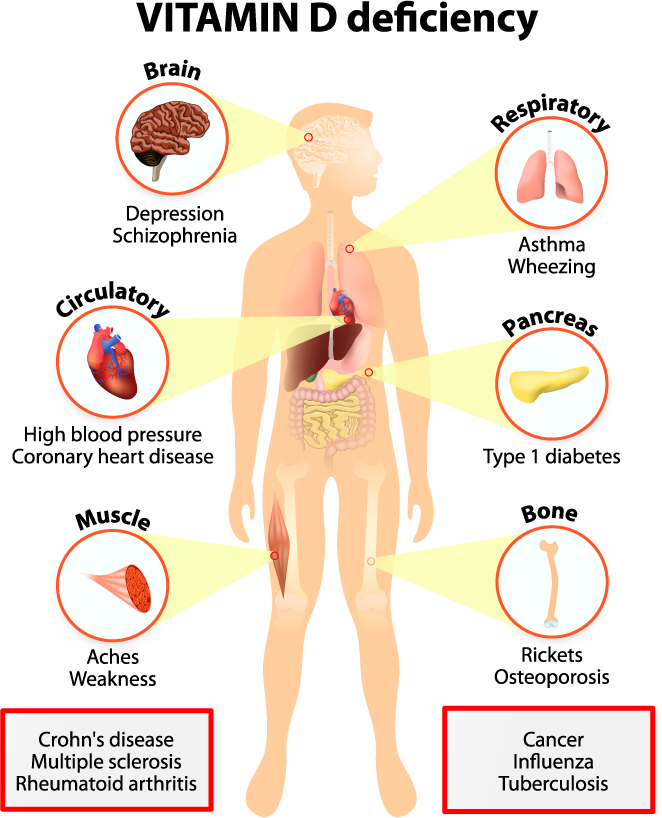
Vitamin D
Vitamin D is divided into ergocalciferol (D2) and cholecalciferol (D3), and is known as the sunshine vitamin. The body forms vitamin D when exposed to the sun’s ultraviolet rays. Small percentages of the vitamin can also be obtained from some foods, such as: cheese, milk and its derivatives. In addition to some types of fish and eggs, the body needs a daily dose of vitamin D, ranging from 300 to 400 international units, or approximately five to ten micrograms.
The importance of vitamin D for the body
The vitamin is considered necessary to help the body absorb calcium and phosphorus, which are the most important elements for the healthy growth of bones and teeth. This occurs through the conversion of provitamin D resulting from exposure to sunlight, into the substance known as (dihydroxyvitamin D), which is responsible. Helping the body absorb calcium and phosphorus.
Symptoms of vitamin D deficiency
A deficiency of vitamin D in the body leads to children suffering from rickets, which causes deformation of the bones, in addition to deformities in the teeth and jaws, and an increased possibility of tooth decay. As for adults, softening of the bones occurs, especially in pregnant and breastfeeding women.
Causes of vitamin D deficiency
Usually, the reason behind a lack of vitamin D in the body is a lack of sufficient exposure to sunlight, to stimulate the body to produce the vitamin. However, if a person is exposed to sunlight in sufficient quantities, and yet there is a deficiency of the vitamin in the body, this is due to the presence of poor health. Absorption or inability of the body to absorb the vitamin from foods.
Reasons for not absorbing vitamin D
The process of absorbing vitamin D in the body takes place in the intestine, specifically in the small intestine. Therefore, any defect in the small intestine, or infection of the intestine, or any of the diseases related to it, hinders the process of absorption of vitamin D, in addition to the presence of Other factors that reduce the body’s ability to do this are:
• Aging, as the skin’s ability to produce the main substance of vitamin D decreases.
• Excessive weight gain, which leads to vitamin D accumulating in fat, instead of the liver.
• Liver and kidney diseases, which impede the benefit of vitamin D.
• Malnutrition and the diet does not contain foods that contain it.
• Taking epilepsy medications taken by people with the disease, as they hinder the intestinal absorption of vitamin D.
• Genetic diseases, such as: increased phosphate secretion in the kidneys






